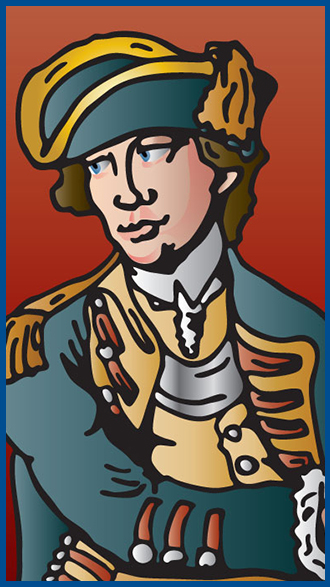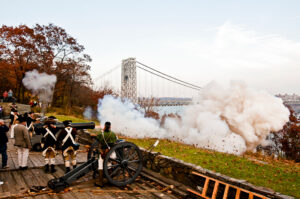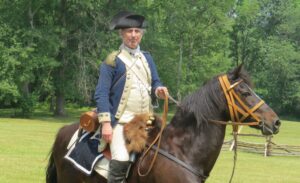Meet Your Revolutionary Neighbors
Charles Lee
1732 – 1782
I was a Patriot General who started my career with promise but ended it in shame.
I was born into a British military family, so it seemed obvious I would be a soldier. I served in the French and Indian War, and then as a “soldier of fortune” mercenary for the King of Poland. In 1773, I came to America and established an estate in western Virginia. When I sided with the colonists leading up to the Revolution, the Continental Congress made me third General, behind only George Washington and Artemas Ward.
People had strong opinions of me because I was outspoken, slovenly in my personal habits, used coarse language, and slept with my hunting dogs, which made me smell bad.
The war started out well for me, I had strong military ideas and my initial successes resulted in having Fort Lee named after me. But then things changed. In December 1776, I spent the night away from my command and British troops captured me in Basking Ridge, so I missed the great victories at Trenton and Princeton. I wasn’t released until later, and rejoined Washington on the way to Monmouth.
In that battle, I first argued against engaging the British but then asserted my seniority to command the advance guard. I was unable to keep firm control of my troops and they began to retreat. Washington rode up, strongly expressed his dissatisfaction, and relieved me of command for the rest of the day. I later wrote a letter of complaint demanding a court martial to clear my name. Unfortunately, the court convicted me of disobedience of orders, “misbehavior before the enemy,” and disrespect to General Washington. I was removed from command.
I went home to my estate in Virginia, and died in Philadelphia in 1782.
Learn More




